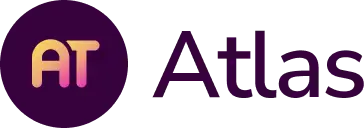Are there moments in your classroom when you have students who are disengaged from learning? Are there times when you transfer the energy to the remainder of your students who are engaged and making progress, thinking to yourself that you will check in with the student later and make a plan for the next day. As long as the student is quiet, you can focus on the rest of your students who want to learn. If this is you, you are not alone. Don’t feel bad—many of us experience this early on in our career.
Soon into my career, I started to focus on student behavior and interventions. I put processes and procedures into place in my classroom that supported my disengaged learners. And, in order to track their growth and progress I used data.
Data became my trusted ally that guided my decision making and informed my practice.
As I transitioned from the classroom into leadership roles, including instructional coaching, student management, and administration, , practiced, revisited, and evaluated. My drive for equity for our students and families led me to the Response to Intervention (RTI) model to structure student support.
Now that the RTI process was the structure, I needed to figure out how that might function in the school and on our Professional Learning Teams. The questions that needed to be answered were:
- Why are we doing this?
- Who are the teams?
- What do we do?
- Where do we start?
- When do we start?
- How will we be consistent?
- What data will be pull?
- What might a plan look like?
- How will we follow up?
- The facilitators of the team meetings,
- When and where are the teams meeting, making sure they do not overlap,
- Time to meet with the facilitators and train on the process of facilitating the meetings,
- Follow up meetings with the facilitators to debrief and plan next steps/supports.
Grade Level Subject (Same Content)
Prepping for a grade level subject (same content) team meeting, the focus is students’ growth academically and behaviorally in content areas. Teachers will look at unit plans, scope and sequences, instructional practices, assessment practices, and assessment data.
For this type of meeting, we will have the data processed that will inform/answer the following questions:
- What is our progress when looking at the unit map (month to month)?
- Are we on target for our scope and sequence (year) or do we need to adjust?
- How are our groups of students scores growing in comparison to other teachers and classes?
- Are we on target with our unit lengths and amount of assessments given and amount of standards learned (comparisons)?
- What interventions have we implemented and what data is collected about the success and/or lack of success?
- Do we have any students who might need to be TAG tested?
Grade Level Team (Shared Students)
When prepping for a grade level team (shared students) meeting, the focus is on student growth academically and behaviorally across content areas. Here teachers compare and analyze the individual student as a whole.
For this type of meeting, we will have the data processed that will inform/answer the following questions:
- How are our individual students progressing across content?
- Are there students who are struggling in more than one core class?
- How long have they been struggling?
- What, if any, interventions have been put in place by the teacher?
- What, if any, interventions have been put in place by the team?
- What students do we need to revisit and potentially have a family meeting with?
- Are there students who are highly proficient across core content areas and may need more of a challenge?
- How are our classes performing in comparison to their grade level peers in the same course, but different teachers?
Leadership (Administration) Team Meeting
When prepping for a leadership (administration) team meeting, the focus is on the whole school and where we are moving in connection to our school improvement plan.
We will have the data processed that will inform/answer the following questions ahead of time:
- What is our discipline summary?
- How are our grade level teams performing?
- How is the pacing and growth of our content teams?
- How are we connecting to our school improvement plan?
- What interventions are successful and what might we need to add or adjust?
CARE Team (Behavior Interventions)
When prepping for a CARE team (behavior interventions) team meeting, the focus is on the student who is struggling in the school environment behaviorally, and has been brought to our attention from the grade level subject team meeting and/or the grade level team.
We will have the data processed that will inform/answer the following questions ahead of time:
- What is our discipline summary?
- What individual students need to be identified for level 1 interventions?
- What individual students need to move off our intervention list?
- How are our current intervention students doing?
- Does a student need to move down a level or up to a level 2 or level 3?
- Do we need to do an FBA?
- Do we need to refer to SPED?
- What classroom teacher might need student management support?
CARE Team (Academic Interventions)
When prepping for a CARE team (academic interventions) team meeting, the focus is on the student who is struggling in the school environment academically, and has been brought to our attention from the grade level subject team meeting and/or the grade level team.
We will have the data processed that will inform/answer the following questions ahead of time:
- What students have come up on the grade level subject (same content) team meetings and grade level team (shared students) team meetings?
- What are their test scores and what is their growth?
- What are their current grades?
- What interventions/extensions can be adjusted or put into place?
- Are there students who are being successful and need to be moved to the monitor list?

